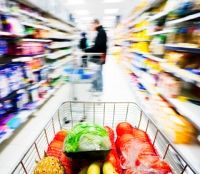

A Wrap report has revealed that nearly 3.6 million tonnes of food are thrown away or fed to animals each year in the UK.
This large sum equates to what is more than £1 billion worth of food, once destined to line the aisles of supermarkets, that is instead thrown away or fed to animals before it can leave the farms each year. According to a study highlighting the scale of the waste problem - crops that are rejected by retailers as a result of not meeting quality standards lead to fluctuations in demand or problems during storage and packing that all help to contribute to the whopping 3.6 million tonnes of waste. This, in the process of primary production, sees more than 10 times more food thrown away than that of retailers.
This includes around 2 million tonnes of surplus edible food that does not make it to a retailer, or any other intended buyer. Instead, it is diverted to feed livestock or to be distributed to charities. The remaining 1.6 million tonnes is disposed of by being ploughed back into the fields, composted, or used to create energy.
Peter Maddox, the director of Wrap has stated that the government-backed body's detailed study helped to identify key sources of waste and is willing to assist the industry in resolving the issue. The sugar beet is most likely to be thrown away with 347,000 tonnes wasted every year - the biggest value of wasted food, however, goes to the poultry section, which accounted for £85 million in 2017. He added: "There is huge potential to reduce the amount of surplus and waste by promoting best practice, and that’s where our work is now focused. We want to increase redistribution of surplus food as has happened across the retail sector."
Wrap has set up a network to connect farmers and small-scale producers to identify new outlets for surplus food, including charities. it is also working with both farmers and retailers, to help improve guidance on setting quality standards, something which farmers stress is one of the main issues causing waste. The understanding of the scale of the waste problem and the impact it has on farmers profits is the first positive step forwards a better outcome.
Large supermarkets and manufacturers have signed up to efforts that hope to drive down the UK's annual £20 billion food waste bill - this is planned to be tackled by committing to halving waste from "farm to fork" by 2030. This could spawn from last autumn's study, when Wrap and the food and grocery charity IGD, set a series of milestones for businesses to reduce waste at every stage of the supply chain.